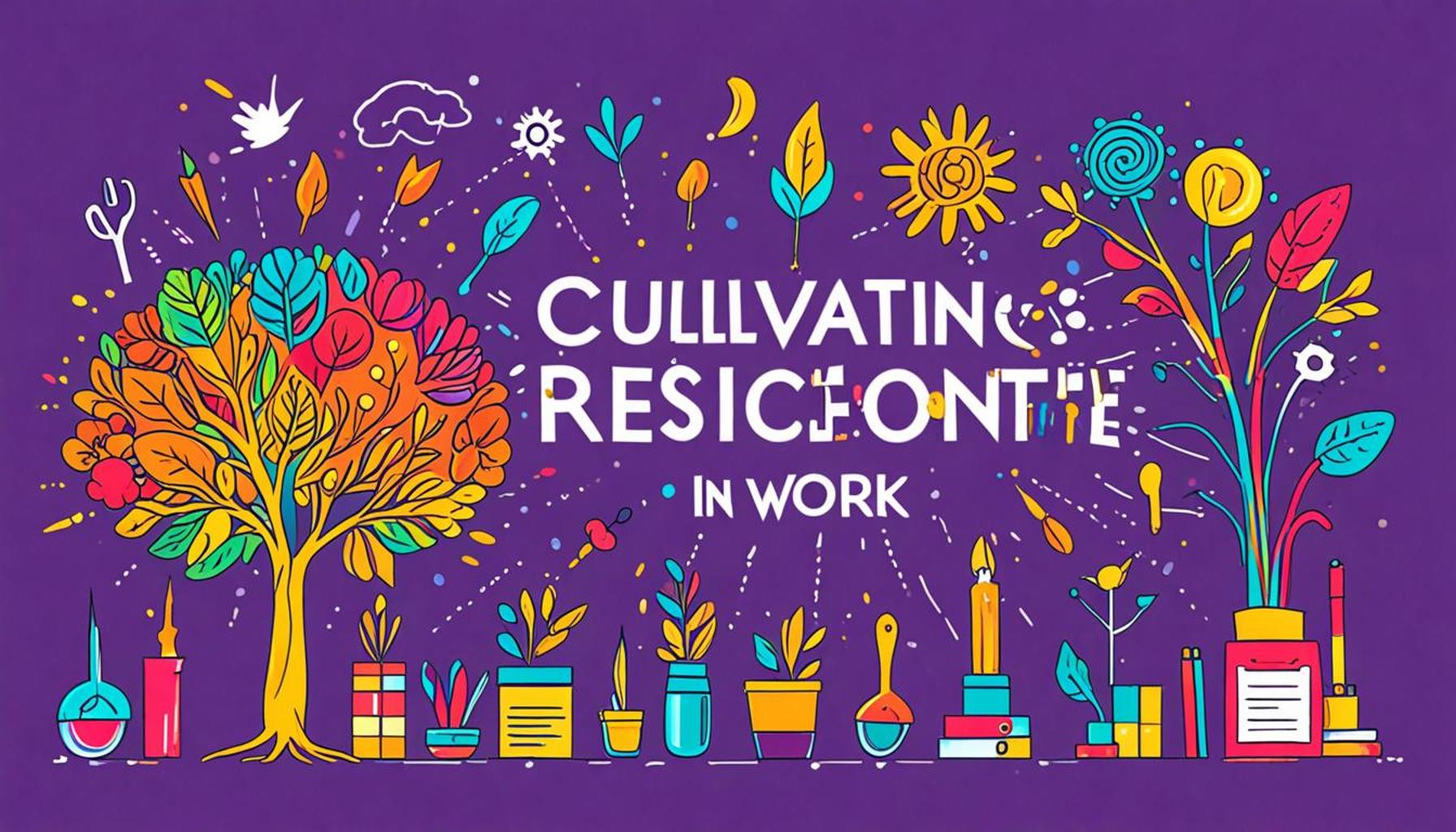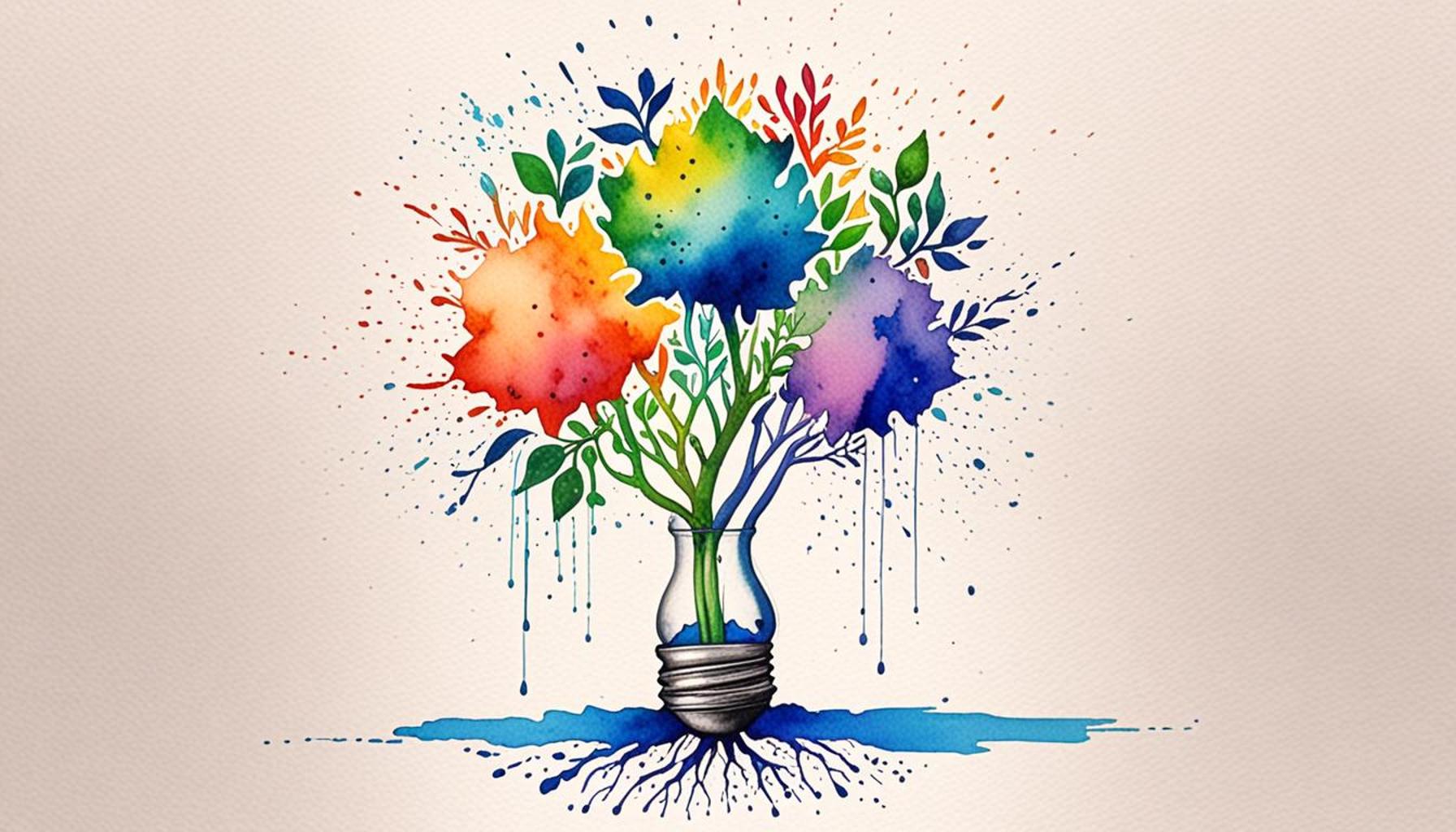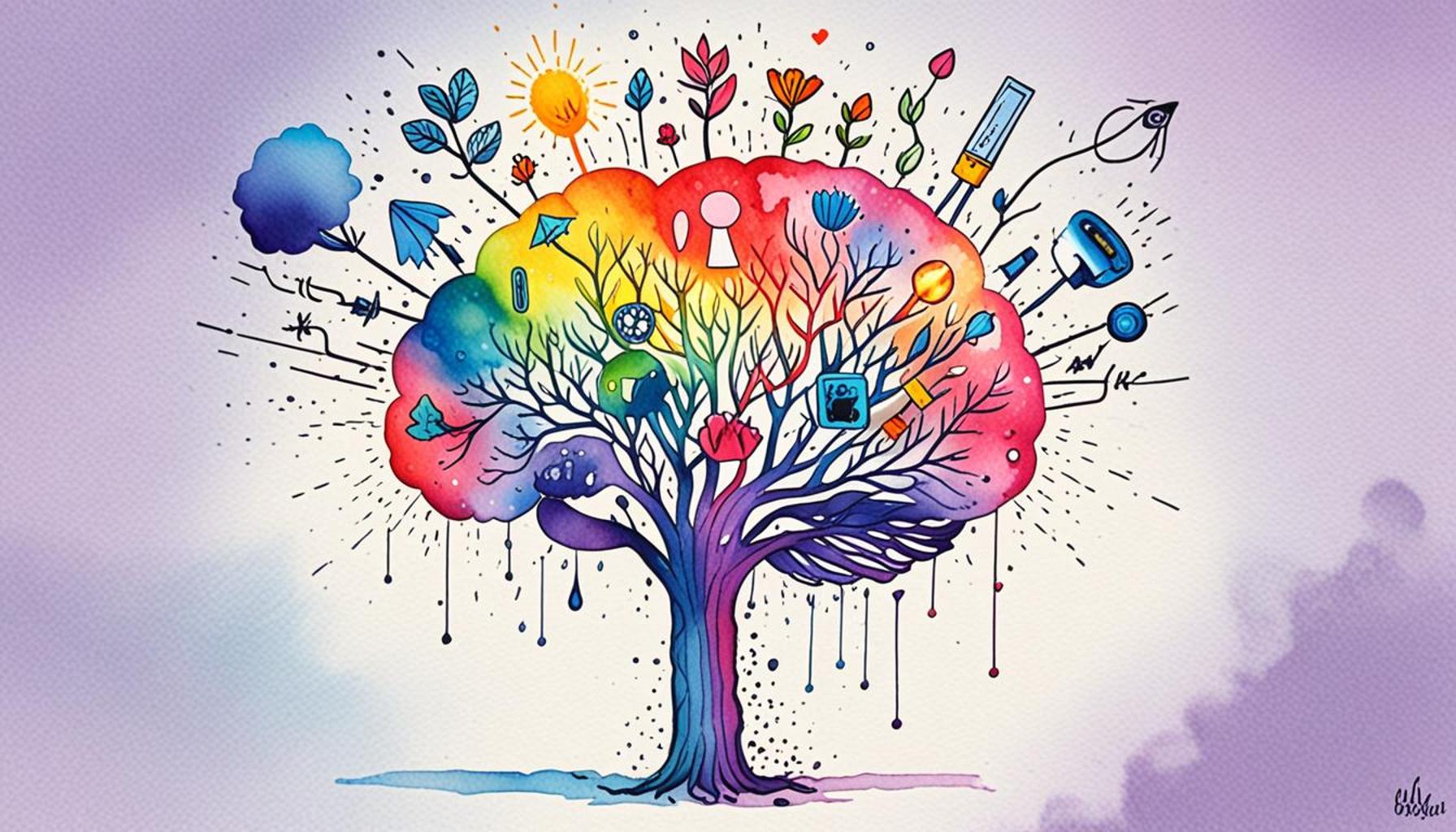Cultivating Resilience in Work Environments: Growth Mindset Techniques for Professionals

The Essence of Resilience in the Workplace
In a global economy that is often subject to sudden shifts due to technological innovation, political changes, and economic fluctuations, resilience is emerging as a cornerstone of successful professional life. As part of an ever-evolving work culture, especially in Nigeria, where businesses face unique challenges such as infrastructure deficits and fluctuating market conditions, the ability to bounce back from setbacks is invaluable. A resilient approach empowers individuals not just to withstand hard times but to emerge stronger, turning challenges into stepping stones for growth.
Defining Cultivating Resilience
What does it really mean to cultivate resilience in a professional setting? It involves a concerted effort to develop certain traits that serve as a foundation for tackling adversity. Let’s delve into a few key aspects that contribute significantly to building resilience:
- Growth Mindset: This concept emphasizes belief in one’s ability to improve and learn through effort. For instance, a marketing professional in Lagos facing stiff competition might invest in upskilling through online courses, thereby enhancing their ability to adapt and innovate.
- Emotional Intelligence: This refers to the ability to understand one’s own emotions and those of others. A team leader in Abuja who can read the room and recognize when team morale is low may implement strategies such as team-building activities or individual check-ins to bolster motivation.
- Adaptability: In today’s fast-paced work environment, being flexible is paramount. For example, during the COVID-19 pandemic, many Nigerian companies adapted to remote work, showcasing the importance of being open to new methods of operation.
Strategies to Enhance Resilience
Beyond understanding these traits, professionals can employ a variety of strategies to amplify their resilience:
- Proactive Problem-Solving: By forecasting potential challenges and creating actionable plans, professionals can minimize fear and uncertainty. For instance, a business owner may develop contingency plans for supply chain disruptions.
- Support Systems: Establishing solid networks of colleagues and mentors provides a support structure essential during tough times. Mentorship programs are gaining traction in Nigerian organizations, helping individuals access vital insights and encouragement.
- Mindfulness Practices: Engaging in mindfulness activities, such as meditation or yoga, can greatly alleviate stress. In the busy urban landscapes of cities like Lagos, professionals may find that even a brief moment of reflection can enhance focus and clarity.
By actively integrating these strategies and fostering a growth mindset, professionals can not only thrive in their current roles but also contribute to creating workspaces that emphasize resilience. This journey involves continuous learning and adaptation, paving the way for a brighter future where adversity becomes merely a stepping stone toward personal and organizational achievement.
YOU MAY ALSO LIKE: Read read another article
Understanding Resilience: A Necessity for Today’s Professionals
Resilience is no longer just a buzzword in corporate training sessions; it has become an essential attribute for professionals navigating the unpredictable waters of the modern workplace. In environments where uncertainty looms large—be it from fluctuating economic conditions, technological advancements, or sudden market shifts—being resilient is crucial. For Nigerian professionals, this means developing an inner strength that goes beyond mere endurance; it involves fostering a growth mindset that thrives on challenges and perceives failures as opportunities to learn and grow.
The Growth Mindset: A Critical Element
The idea of a growth mindset, popularized by psychologist Carol Dweck, posits that abilities and intelligence can be developed through dedication and hard work. This concept is particularly relevant in Nigeria’s fast-paced work environment, where professionals often encounter obstacles that test their skills and resolve. For instance, a software developer in Abuja facing project setbacks can view these challenges as stepping stones to improve their coding techniques or project management skills rather than as reflective of their capabilities. Adopting a growth mindset can significantly alter one’s approach to adversity, transforming challenges into a foundation for professional development.
Key Techniques to Build Resilience
Professionals looking to cultivate resilience within their work environments can benefit from implementing several effective techniques. These methods not only enhance individual capacity for resilience but can also positively influence team dynamics. Here are some practical techniques:
- Embrace Learning Opportunities: Every failure can be a lesson. By analyzing what went wrong and extracting insights, professionals can refine their strategies and avoid similar pitfalls in the future.
- Set Realistic Goals: Setting attainable objectives within a specified timeframe encourages a sense of achievement. Breaking down large projects into manageable tasks can help professionals maintain motivation and focus.
- Seek Feedback: Engaging colleagues and mentors for constructive criticism can provide new perspectives on challenges. For example, a sales manager in Lagos may invite feedback on their presentation techniques to improve client interactions.
Through the consistent application of these techniques, professionals not only enhance their resilience but also cultivate a workplace culture where adaptability and learning are celebrated. This journey toward resilience requires persistence and commitment, ultimately paving the way for both individual success and collective growth within organizations.
As professionals embark on this path, they are not merely investing in their own development; they are contributing to a broader shift towards resilient work environments that can withstand the pressures of a changing world. In doing so, they not only secure their own place in the workforce but also inspire others to embrace the notion that resilience is a valuable asset in today’s professional landscape.
| Growth Mindset Technique | Advantages |
|---|---|
| Embracing Challenges | Promotes adaptability and innovation in overcoming obstacles. |
| Learning from Criticism | Enhances personal growth through constructive feedback. |
| Setting Incremental Goals | Fosters a sense of achievement and keeps motivation high. |
| Celebrating Small Wins | Builds resilience and contributes to a positive workplace culture. |
In today’s competitive and ever-evolving professional landscape, cultivating resilience is paramount. Growth mindset techniques play a crucial role in shaping resilient individuals who can thrive amidst changes and challenges. One powerful technique is embracing challenges. By viewing obstacles as opportunities rather than barriers, professionals can enhance their adaptability and innovation, critical skills in any work environment.Another technique, learning from criticism, significantly impacts personal and professional development. Feedback, especially when constructive, can redirect efforts towards meaningful improvement. Setting incremental goals allows professionals to break down larger tasks into achievable steps, boosting motivation and creating a sense of accomplishment along the journey. Lastly, celebrating small wins is a technique that should not go unnoticed. It not only builds resilience but also contributes to a positive workplace culture, reinforcing the belief that progress, no matter how small, is valuable. Adopting these techniques can transform work environments, driving success through a collective growth mindset philosophy.
ADDITIONAL INSIGHTS: Expand your understanding here
Nurturing a Resilient Mindset Through Community and Support
While individual efforts are crucial in cultivating resilience, they can be significantly enhanced through a supportive community. In Nigeria, where workplace culture often emphasizes collectivism alongside individual achievement, leveraging relationships can foster resilience within professional settings. Building a network of support can provide not only solidarity but also diverse perspectives that can aid in problem-solving. For instance, participating in industry-specific forums or mentorship programs can connect professionals with seasoned experts who can share their experiences and strategies for overcoming adversity.
Peer Collaboration: The Power of Team Dynamics
Collaborative environments contribute to resilience by allowing individuals to pool their skills and resources. In practices where team projects are common, such as in marketing agencies or tech startups, the sharing of workloads can inspire new ideas and innovations. For example, a project team in Lagos that adopts a brainstorming session to tackle a stalled campaign benefits from collective creativity. Not only does this environment reinforce the idea that challenges can be overcome together, but it also nurtures friendships and camaraderie that enhance emotional support when facing professional pressures.
The Role of Emotional Intelligence
Another pivotal element to strengthening resilience is fostering emotional intelligence (EI). Emotional intelligence refers to the ability to identify, understand, and manage one’s own emotions as well as those of others. A professional with high EI is better equipped to navigate stressful situations, leading to improved decision-making and conflict resolution. For instance, a manager in a Nigerian bank who recognizes when their team is feeling overwhelmed can offer support rather than pushing for immediate results, ultimately boosting morale and resilience within the team.
Adopting Flexible Thinking
Creating a resilient work culture also involves encouraging flexible thinking. This means professionals should be open to adapting their strategies in response to changing circumstances. An IT specialist working in Abuja might need to pivot quickly when a leading software they are using becomes outdated. Rather than viewing this as a setback, embracing flexible thinking allows them to explore alternatives or upgrade their skills, steering the situation towards constructive outcomes. Workshops emphasizing adaptability and continuous learning can reinforce this approach, offering professionals the chance to practice adaptability in safe environments.
Mindfulness and Stress-Relief Strategies
In the high-pressure professional world, integrating mindfulness practices can be beneficial for nurturing resilience. Techniques such as meditation, deep-breathing exercises, and even physical activities like yoga can enable professionals to manage stress effectively. A company based in Port Harcourt might offer weekly yoga sessions during lunchtime, promoting both physical well-being and collective resilience. Encouraging time for relaxation and reflection amid busy schedules can help professionals stay grounded when faced with challenges.
Incorporating these various strategies not only inspires individuals to become more resilient but also contributes to creating an overall culture where resilience is celebrated and fostered. This holistic approach nurtures a workforce that is equipped to handle challenges and utilize setbacks as catalysts for growth and innovation.
SEE ALSO: Click here to read another article
Conclusion: Embracing Resilience for a Thriving Professional Future
Cultivating resilience in work environments is not merely an option; it is a vital necessity in today’s fast-paced and often unpredictable professional landscape. By adopting a growth mindset, professionals can transform challenges into opportunities, fostering a culture that welcomes adaptation and innovation. The techniques discussed, such as nurturing emotional intelligence, embracing flexible thinking, and engaging in supportive community dynamics, establish a robust framework for resilience that not only uplifts individuals but also paves the way for collective success.
Organizations in Nigeria, particularly those emphasizing collaboration and community, stand to reap significant benefits by integrating these resilience-building strategies. By prioritizing emotional intelligence, team collaboration, and mindfulness practices, companies can enhance employee well-being and loyalty, translating into higher productivity and job satisfaction. Moreover, as professionals take ownership of developing their resilience, they contribute to a resilient organizational culture that thrives even in the face of adversity.
Ultimately, fostering resilience is a commitment to continuous learning, adaptability, and support—elements that are essential in nurturing a workforce capable of navigating the complexities of modern work. As professionals in Nigeria and beyond embrace these techniques, they not only enhance their personal career trajectories but also contribute to building environments where resilience is not only recognized but celebrated, leading to sustainable growth and innovation in the long run.



